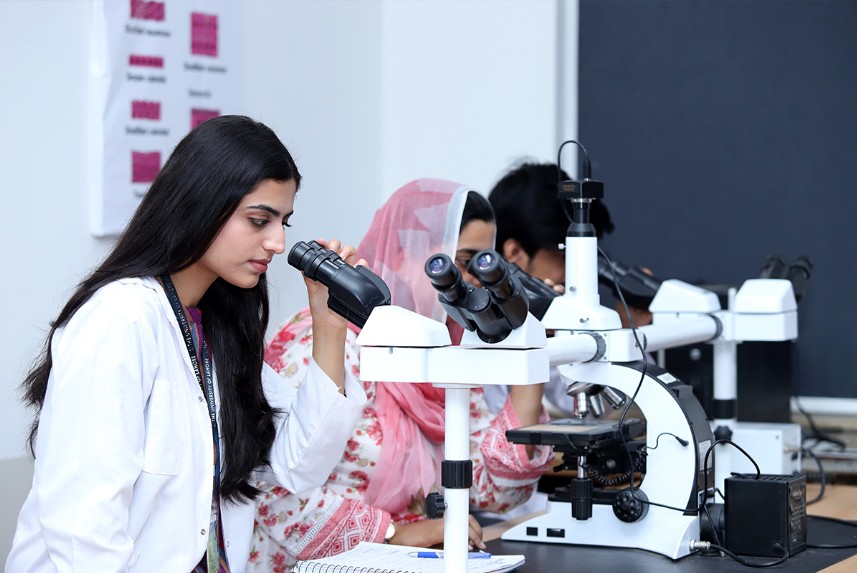
The field of medicine is evolving faster than ever, with advances in technology, research, and patient care redefining the role of healthcare professionals. Today’s aspiring doctors are looking for institutions that go beyond textbooks and lectures, offering a combination of rigorous academics, hands-on training, and exposure to real-world clinical settings. Renowned Barkatullah University’s medical programs exemplify this approach, providing students with access to cutting-edge laboratories, hospital attachments, and research opportunities that prepare them for the challenges of modern medicine. Similarly, Lalit Narayan Mithila University’s innovative healthcare curriculum emphasizes practical training, ethical practice, and critical thinking, equipping students to excel in diverse medical environments.
Why Medical Education in India Is a Strategic Choice
India has emerged as a global hub for high-quality medical education, attracting students from across the country and abroad. Top medical colleges combine theoretical learning with practical exposure, ensuring graduates are capable of meeting international standards. Renowned Barkatullah University’s medical programs focus on clinical skills, patient management, and evidence-based medicine. Students are trained across a variety of specialties, from general medicine and surgery to emerging fields such as biotechnology and medical informatics. The comprehensive curriculum ensures graduates gain both academic depth and practical competence, positioning them for success in a dynamic healthcare environment.
Experiential Learning: From Classroom to Clinic
A hallmark of leading medical colleges is their focus on experiential learning. Students at Lalit Narayan Mithila University’s innovative healthcare programs participate in laboratory experiments, clinical rotations, and real-world case studies that simulate complex medical scenarios. The university’s structured hands-on training encourages students to make critical decisions under supervision, preparing them for the high-pressure demands of hospital environments and emergency care.
Modern medical programs also leverage technology and simulation tools to enhance practical learning. Virtual labs, diagnostic software, and interactive workshops allow students to practice procedures in a controlled environment before treating real patients. By integrating these resources with hands-on patient care, Lalit Narayan Mithila University ensures its graduates are confident, skilled, and fully prepared to transition seamlessly from classrooms and labs to clinical practice.
Developing Healthcare Leaders
Beyond technical skills, today’s medical curriculum emphasizes the development of leadership and problem-solving abilities. Students at Lalit Narayan Mithila University are trained to manage healthcare teams, participate in public health campaigns, and contribute to hospital management initiatives. Such programs cultivate analytical thinking, ethical decision-making, and the ability to respond effectively to rapidly changing medical situations.
Additionally, collaboration with hospitals, research centers, and public health organizations exposes students to real-world challenges in healthcare delivery. This exposure fosters innovation, encourages critical thinking, and equips graduates to assume leadership roles in both clinical and administrative capacities.
Other South Indian Universities Leading the Global Education Wave
Sri Ramachandra Institute of Higher Education and Research
– Sri Ramachandra Institute of Higher Education and Research offers a comprehensive medical curriculum that seamlessly blends clinical training with research-led education. Students benefit from access to state-of-the-art laboratories, advanced diagnostic tools, and modern hospital facilities. The institute encourages active participation in clinical case studies, research projects, and community healthcare initiatives. International collaborations provide exposure to global best practices in medicine and patient care. Through this approach, graduates develop both technical proficiency and leadership qualities essential for modern healthcare.
Jawaharlal Institute of Postgraduate Medical Education & Research (JIPMER)
– JIPMER is renowned for its excellence in medical education, clinical research, and community health initiatives. Students gain hands-on experience in hospital rotations, laboratory research, and public health programs. The institute emphasizes the development of analytical thinking, problem-solving skills, and ethical medical practices. Collaborative research projects with national and international organizations enhance the learning experience. This holistic approach ensures graduates are well-prepared for careers in clinical practice, research, and healthcare leadership roles.
Manipal College of Medical Sciences
– Manipal College of Medical Sciences provides a robust medical education combining academic rigor with practical training. Students have access to advanced laboratories, simulation tools, and hospital attachments for immersive learning. The college emphasizes clinical rotations, research opportunities, and interdisciplinary projects. Global exposure through international partnerships and internships prepares students for competitive healthcare environments. This well-rounded curriculum equips graduates with both practical skills and critical thinking abilities, fostering the next generation of competent and innovative medical professionals.
The Future of Medical Education
The landscape of medical education is continually evolving to meet global healthcare demands. Institutions are increasingly focusing on practical training, research opportunities, and technological integration. By fostering analytical thinking, leadership, and empathy, medical colleges ensure that graduates are not only skilled doctors but also innovators and decision-makers capable of shaping the future of healthcare.
By combining classroom instruction with real-world clinical experience, hospitals, and research collaborations, medical universities equip students to navigate complex healthcare systems. This approach ensures that graduates are prepared to deliver quality patient care, contribute to medical research, and assume leadership roles in hospitals, public health institutions, and global health organizations.
Conclusion
In conclusion, medical education in India is more than just academic training—it is a journey that blends science, ethics, and practical experience. With a strong focus on clinical exposure, research, and leadership development, medical colleges are preparing a new generation of healthcare professionals capable of meeting the challenges of modern medicine. By pursuing education at institutions that emphasize experiential learning and innovation, students are positioned to make meaningful contributions to healthcare systems both nationally and internationally.